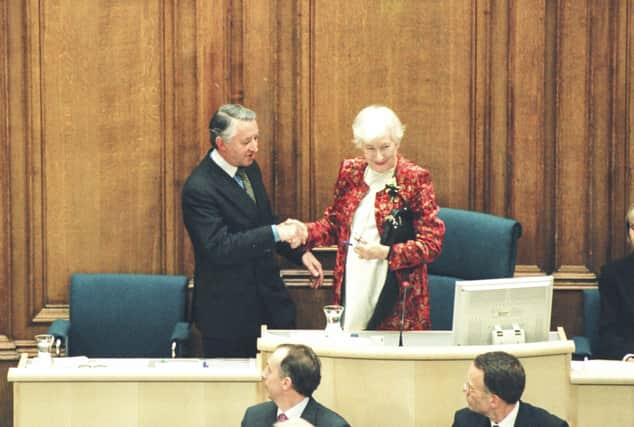Winnie Ewing was a titan of the SNP and Scottish politics whose sparkling career shows just how much can be achieved in a democracy – Scotsman comment


Regardless of differing views on Scottish independence, there will be few who will not mourn the passing of one of the greatest Scottish politicians of the modern era, Winnie Ewing. From her shock victory in the 1967 Hamilton by-election to her days as ‘Madame Ecosse’ in the European Parliament and then her role as the first presiding officer of the Scottish Parliament, there is much to be admired in her extraordinary political career.
The First Minister, Humza Yousaf, said that “no words can truly capture the unique and unparalleled contribution that Winnie made to Scotland and Scottish politics”, adding that her work had “shaped the modern nation we have today”. “Without Winnie... the SNP would never have achieved the success we have, and self-government for Scotland would never have become the priority it did,” he said.
Advertisement
Hide AdAdvertisement
Hide AdScottish Conservative leader Douglas Ross described her as a “titan of the SNP party and the wider independence movement” who “rightly enjoyed cross-party respect”; Liberal Democrat MP Christine Jardine said Ewing was an “incomparable” figure, adding that she had been “honoured to meet her” as a young journalist; Scottish Labour leader Anas Sarwar said her death was “extremely sad news”.
And the tributes were not confined to Scotland. Nigel Evans, deputy speaker of the House of Commons, told MPs that “her passing will leave a vacuum in the world of politics, not only in Scotland but throughout the whole of the United Kingdom and indeed within Europe as well”.
In 1967, the SNP was a fringe political movement with no seats in the Commons until Ewing took the former Labour stronghold of Hamilton. It was a landmark moment for the cause of independence that she captured in a famous phrase: “Stop the world, Scotland wants to get on.”
Rightly lauded by nationalists, her success should also be viewed as an example of what is possible in a democracy, and as a counter to those who say “nothing ever changes” or “politicians are all the same”. Voting matters, small political parties can rise to power, and we all have a chance to change the world in which we live. Winnie Ewing proved it.
Comments
Want to join the conversation? Please or to comment on this article.
